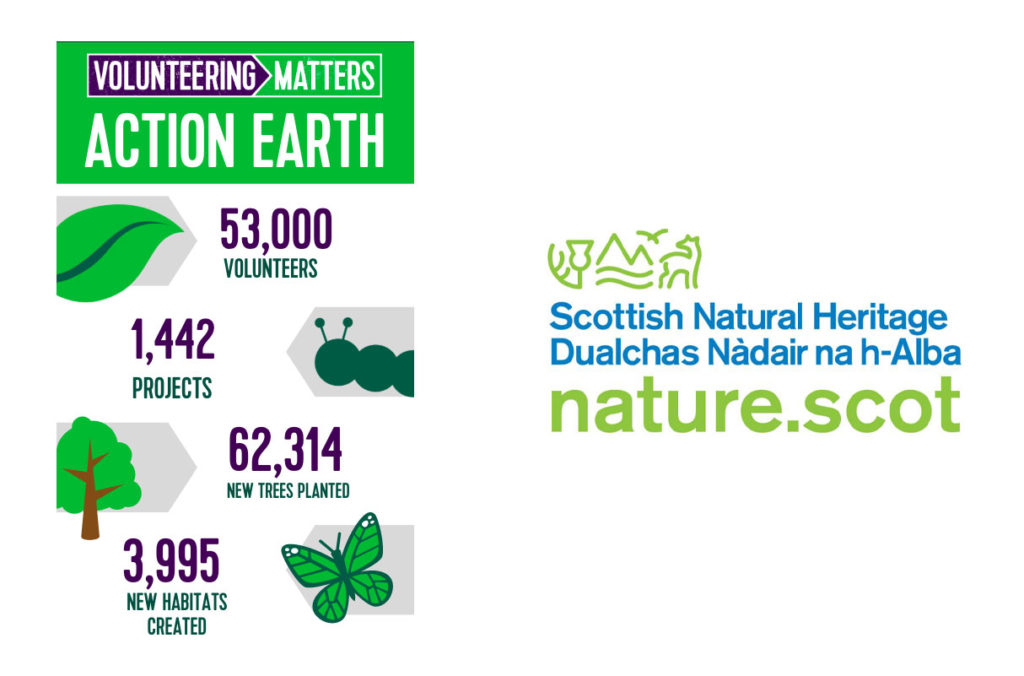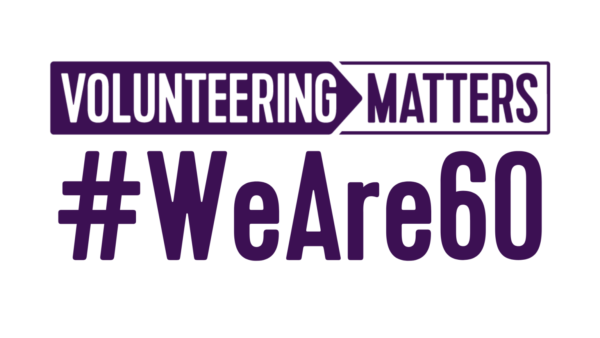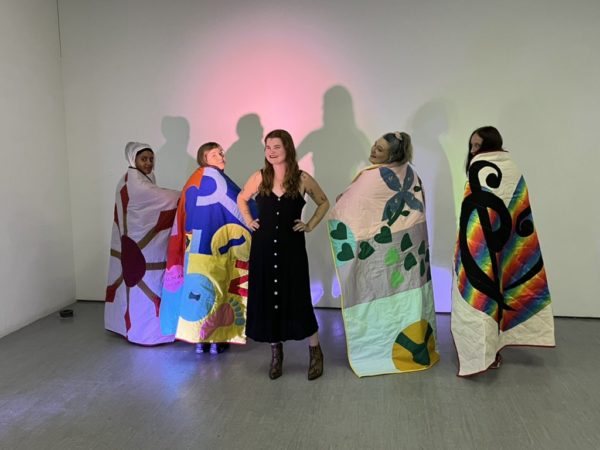Our long-running Action Earth scheme is celebrating the one millionth hour of volunteering time given by volunteers on its funded projects this decade!
Action Earth funds projects in Scotland that enable people to improve the environment through volunteering. It focuses on where volunteering can have the biggest impact, working in areas where there may be high social or economic deprivation and with people living with disabilities, or those at risk of being excluded from their community.
Since 2010 over 53,000 volunteers have helped improve the environment through more than 1,442 projects. The impact has been enormous, with an estimated 19 million square metres of land worked on and improved, 62,314 new trees planted locally and 3,995 new wildlife habitats created.
The one millionth hour milestone was reached at the Shettleston Community Growing Project (SCGP) in Glasgow. The volunteering project started in 2009 with a contaminated site formerly used for industrial purposes. SCGP have transformed the space into one of the most dynamic and well maintained urban environmental projects in Scotland.
Since 2011, SCGP have received Action Earth grants which has helped them develop new community resources. SCGP have applied in their own right and also for projects for the stand-alone Smelly Welly Club, aimed at getting younger people engaged in environmental volunteering. Action Earth grants have helped SCGP to create wildflower and orchard areas, a pond with an observation platform, a butterfly garden and numerous wildlife habitats across the site.
“The Action Earth grants have been great because they let us do projects as a community – it brings everyone together and we have enough tools, plants and projects to keep everyone involved. Some of us have even learned basic sign language to communicate with a group that comes here every Wednesday. People would otherwise be sitting at home watching telly and instead they are here, being active and meeting people who will do everything for you and ask for nothing in return.” George Hagan, who has volunteered at SCGP since 2014.
Action Earth is funded by Scottish Natural Heritage, and offers easy to access grants of up to £500 for practical environmental activities.
Not many people start volunteering at six but David Morrison (now 11) is a Smelly Welly Club veteran and participated in all of their Action Earth projects. “It took us almost a month to dig a hole for our pond. It was a lot of hard work but we had a lot of fun, especially once the black liner went in and we got to fill it with water and plants. We now have LOADS of frogs…I’ve learnt a lot about plants and how to grow them. We also get to make food together with the vegetables we grow. Before I came here I just thought everything came from Asda. The happiness it gives you is great when you know you have grown it. It somehow tastes better”. David has no doubts about his future “I want to be an Environmental Engineer and help save the planet from climate change and would like to keep reminding people how important plants are for us.”
Francesca Osowska, Chief Executive of Scottish Natural Heritage, said: “This is a fantastic milestone. We’d like to say a big thank you to all of the dedicated individuals and community groups up and down the country who are giving up their precious time to do their bit for nature.
Improving the greenspace, habitats and biodiversity in our towns and cities is not only beneficial for the health and wellbeing of local communities but is also a crucial part of tackling the effects of climate change, and these volunteers and projects are playing an important role in ensuring a nature-rich future for Scotland.
We are delighted to continue our funding for Action Earth. Any group of volunteers can apply for a grant, and we encourage everyone to get involved, get outdoors and have fun. We look forward to hearing more about the green projects that will make a positive difference this year.”
Volunteering Matters Action Earth grants are available to any group of volunteers carrying out practical environmental improvements or wildlife habitat creation in their local green spaces. The campaign is especially keen to hear from projects who work with vulnerable people or whose work benefits disadvantaged communities.



